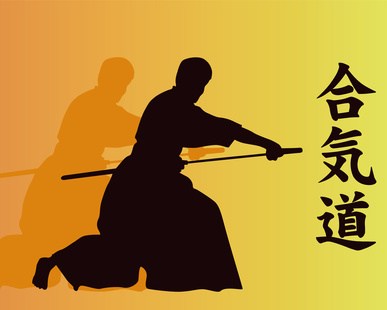

The excerpt below is from the book A Little Book of Listening Skills (102 pages, 2005) by Jennifer Austin Leigh and Mark Brady. Scribd Link.

The train clanked and rattled through the suburbs of Tokyo on a drowsy spring afternoon. Our car was comparatively empty – a few housewives with their kids in tow, some old folks going shopping. I gazed absently at the drab houses and dusty hedge rows.
At one station the doors opened, and suddenly the afternoon quiet was shattered by a man bellowing violent, incomprehensible curses. The man staggered into our car. He wore labourer’s clothing, and he was big, drunk and dirty. Screaming, he swung at a woman holding a baby. The blow sent her spinning into the laps of an elderly couple. It was a miracle that the baby was unharmed.
Terrified, the couple jumped up and scrambled toward the other end of the car. The labourer aimed a kick at the retreating back of the old woman but missed as she scuttled to safety. This so enraged the drunk that he grabbed the metal pole in the centre of the car and tried to wrench it out of the stanchion. I could see that one of his hands was cut and bleeding. The train lurched ahead, the passengers frozen with fear. I stood up.
I was young then, some twenty years ago, and in pretty good shape. I’d been putting in a solid eight hours of aikido training nearly everyday for the past three years. I liked to throw and grapple. Ithought I was tough. The trouble was, my martial skill was untested in actual combat. As students of aikido, we are not allowed to fight.
"Aikido," my teacher had said again and again, “is the art of reconciliation. Whoever has the mind to fight has broken his connection with the universe. If you try to dominate people, you are already defeated. We study how to resolve conflict, not how to start it."
I listened to his words. I tried hard. I even went so far as to cross the street to avoid the chimpira, the pinball punks who lounged around the train stations. My forbearance exalted me. I felt both tough and holy. In my heart, however, I wanted an absolutely legitimate opportunity whereby I might save the innocent by destroying the guilty.
"This is it!" I said to myself as I got to my feet. “People are in danger.If I don’t do something fast, somebody will probably get hurt.
"Seeing me stand up, the drunk recognised a chance to focus his rage. "Aha!" he roared. "A foreigner! You need a lesson in Japanese manners!"
I held on lightly to the commuter strap overhead and gave him a lookof disgust and dismissal. I planned to take this turkey apart, but he had to make the first move. I wanted him mad, so I pursed my lips and blew him an insolent kiss.
"All right!" he hollered. “You’re gonna get a lesson in Japanese manners.” He gathered himself for a rush at me.
A fraction of a second before he could move, someone shouted “Hey!” It was ear-splitting. I remember the strangely joyous, lilting quality of it – as though you and a friend had been searching diligently for something and he had suddenly stumbled upon it. “Hey!”
I wheeled to my left; the drunk man to his right. We both stareddown at this little Japanese man. He must have been well into his seventies, this tiny gentleman, sitting there immaculate in his kimono. He took no notice of me, but beamed delightedly at the labourer, as though he had a most important, most welcome secret to share.
"C'mere," he old man said in an easy vernacular, beckoning to thedrunk. “C’mere and talk with me.” He waved his hand lightly.
The big man followed, as if on a string. He planted his feet belligerently in front of the old gentleman, and roared above the clacking wheels, “Why the hell should I talk to you?” The drunk now had his back to me. If his elbow moved as much as a millimetre, I'd drop him in his socks.
The old man continued to beam at the labourer. “What’cha been drinkin’?” he asked, his eyes sparkling with interest.
“I been drinking sake,” the labourer bellowed back, “and it’s none of your business!” Flecks of spittle spattered the old man.
“Oh, that’s wonderful,” the old man said, “absolutely wonderful! You see, I love sake too. Every night, me and my wife – she’s 76, you know – we warm up a little bottle of sake and take it out into the garden, and we sit on an old wooden bench. We watch the sun go down, and we look to see how our persimmon tree is doing. My great-grandfather planted that tree, and we worry about whether it will recover from those ice storms we had last winter. Our tree has done better that I expected, though, especially when you consider the poor quality of the soil. It’s gratifying to watch when we take our sake and go out to enjoy the evening – even when it rains!” He looked up at the labourer, eyes twinkling.
As he struggled to follow the old man’s conversation, the drunk’s face began to soften. His fists slowly unclenched. “Yeah,” he said. “I love persimmons, too...” His voice trailed off.
“Yes,” said the old man, smiling, “and I’m sure you have a wonderful wife.”
“No,” replied the labourer. “My wife dies.” Very gently, swaying with the motion of the train, the big man began to sob. “I don’t got no wife. I don’t got no home. I don’t got no job. I’m so ashamed of myself.” Tears rolled down his cheeks; a spasm of despair rippled through his body.
Now it was my turn. Standing there in my well scrubbed youthful innocence, my make-this-world-safe-for-democracy righteousness, I suddenly felt dirtier than he was.
Then the train arrived at my stop. As the doors opened, I heard the old man cluck sympathetically. “My, my,” he said, “That is a difficult predicament, indeed. Sit down here and tell me about it.”
I turned my head for one last look. The labourer was sprawled on the seat, his head in the old man’s lap. The old man was softly stroking the filthy, matted hair. As the train pulled away, I sat down on a bench. What I wanted to do with muscle … had been accomplished with love.